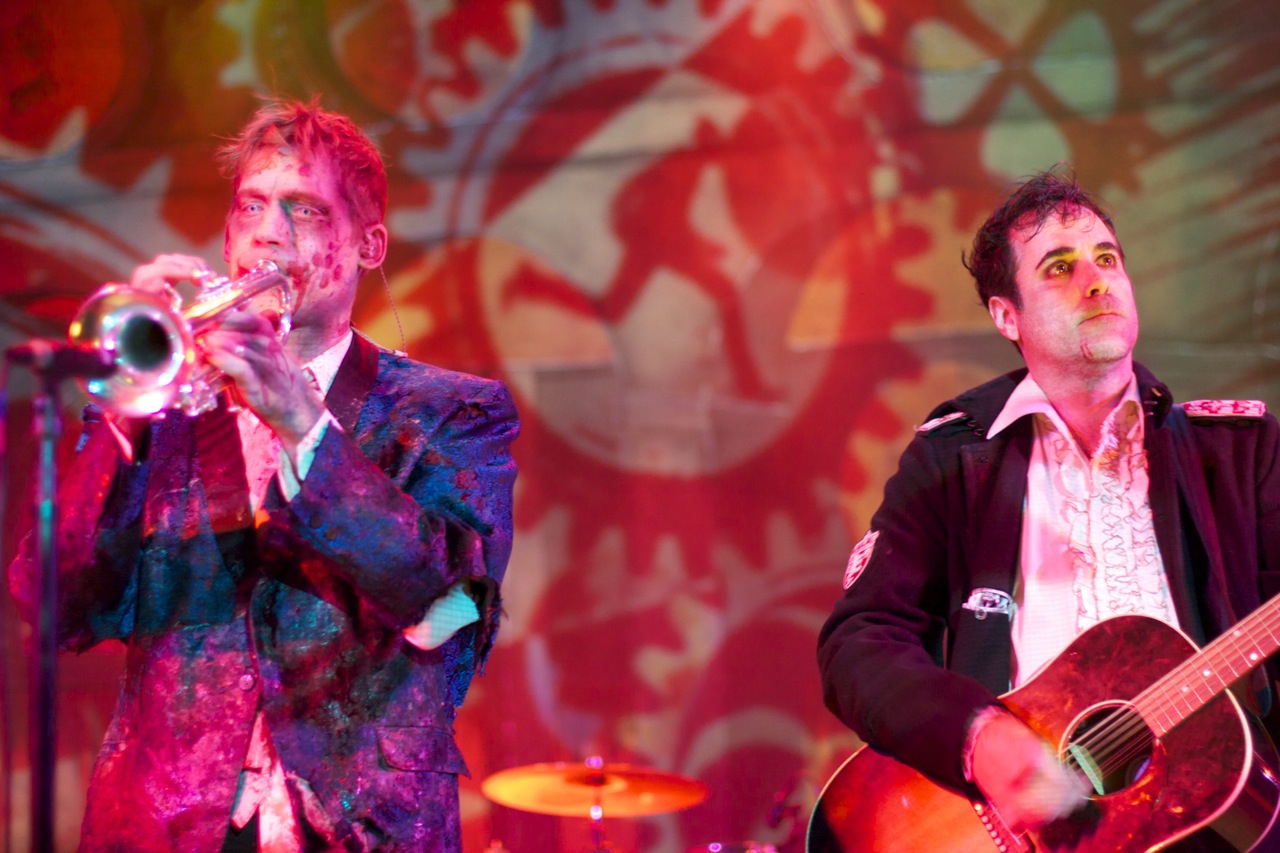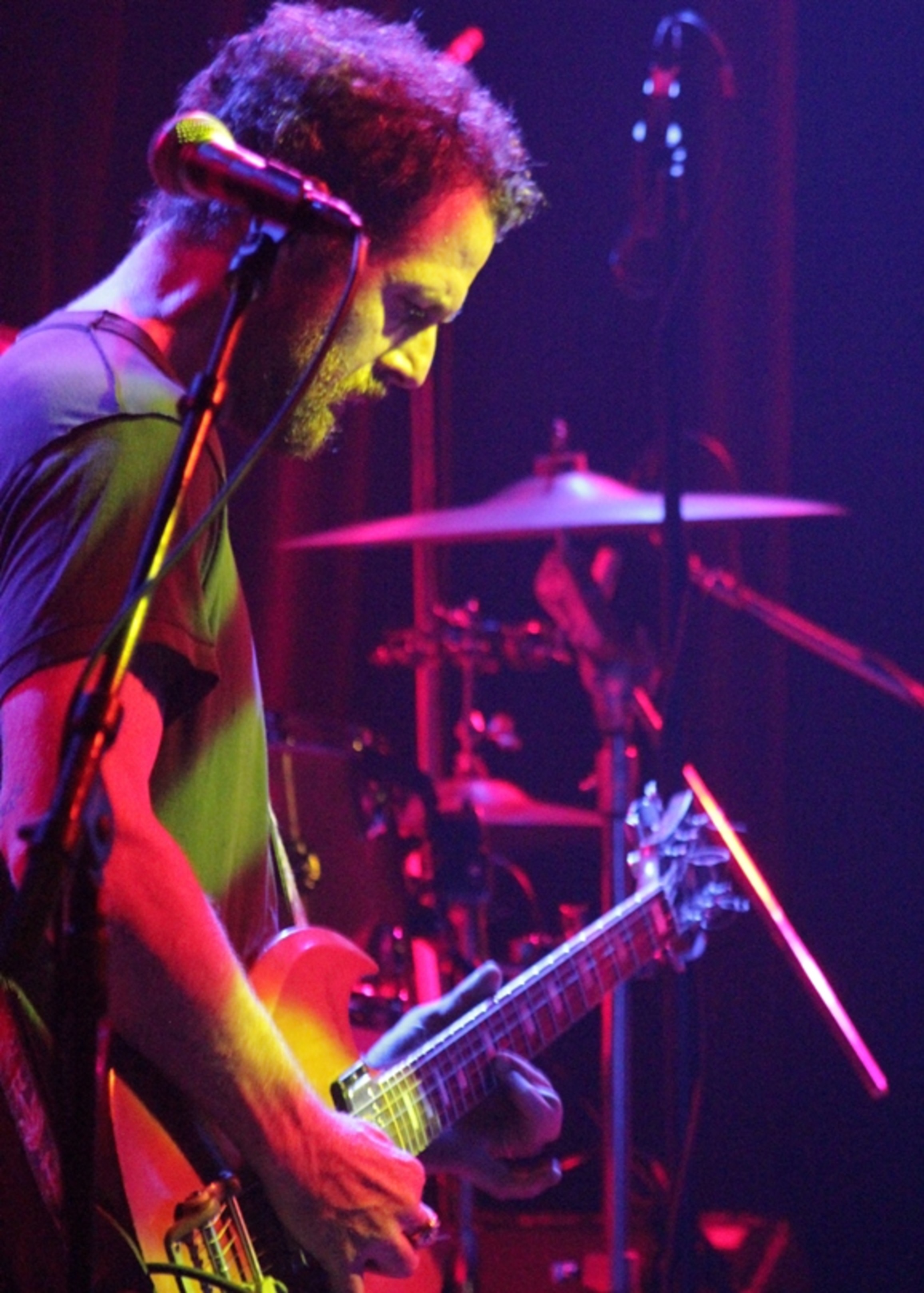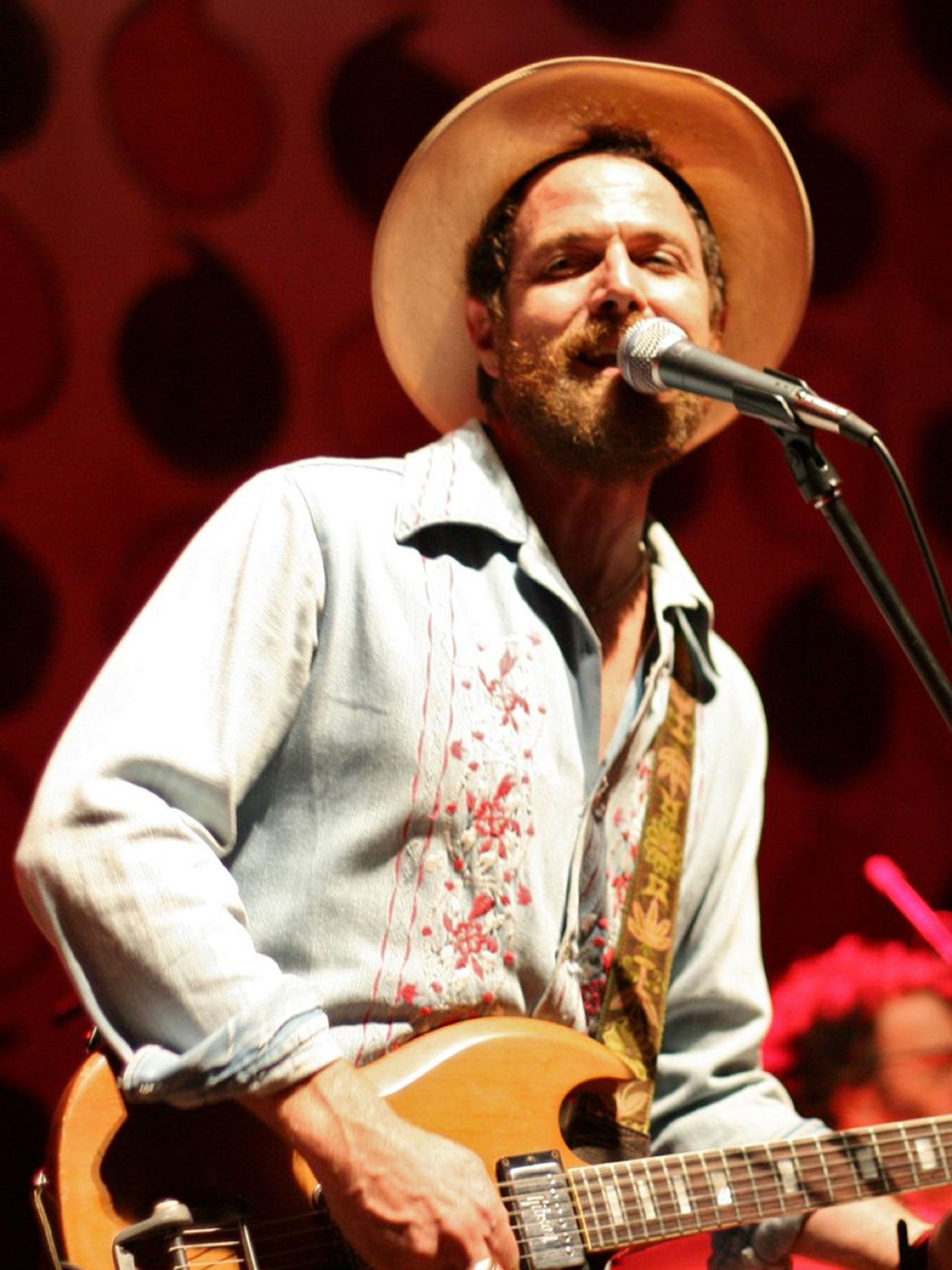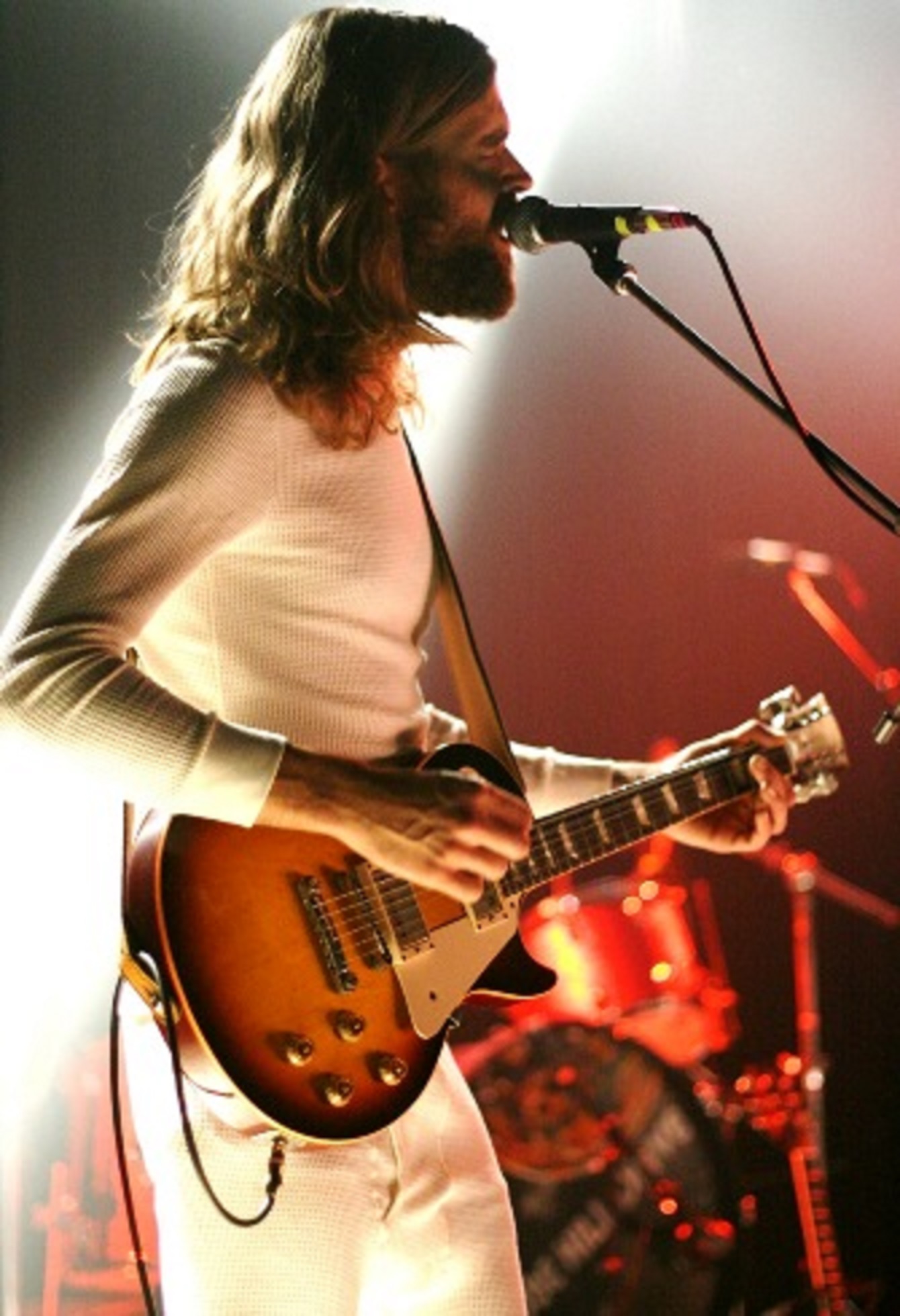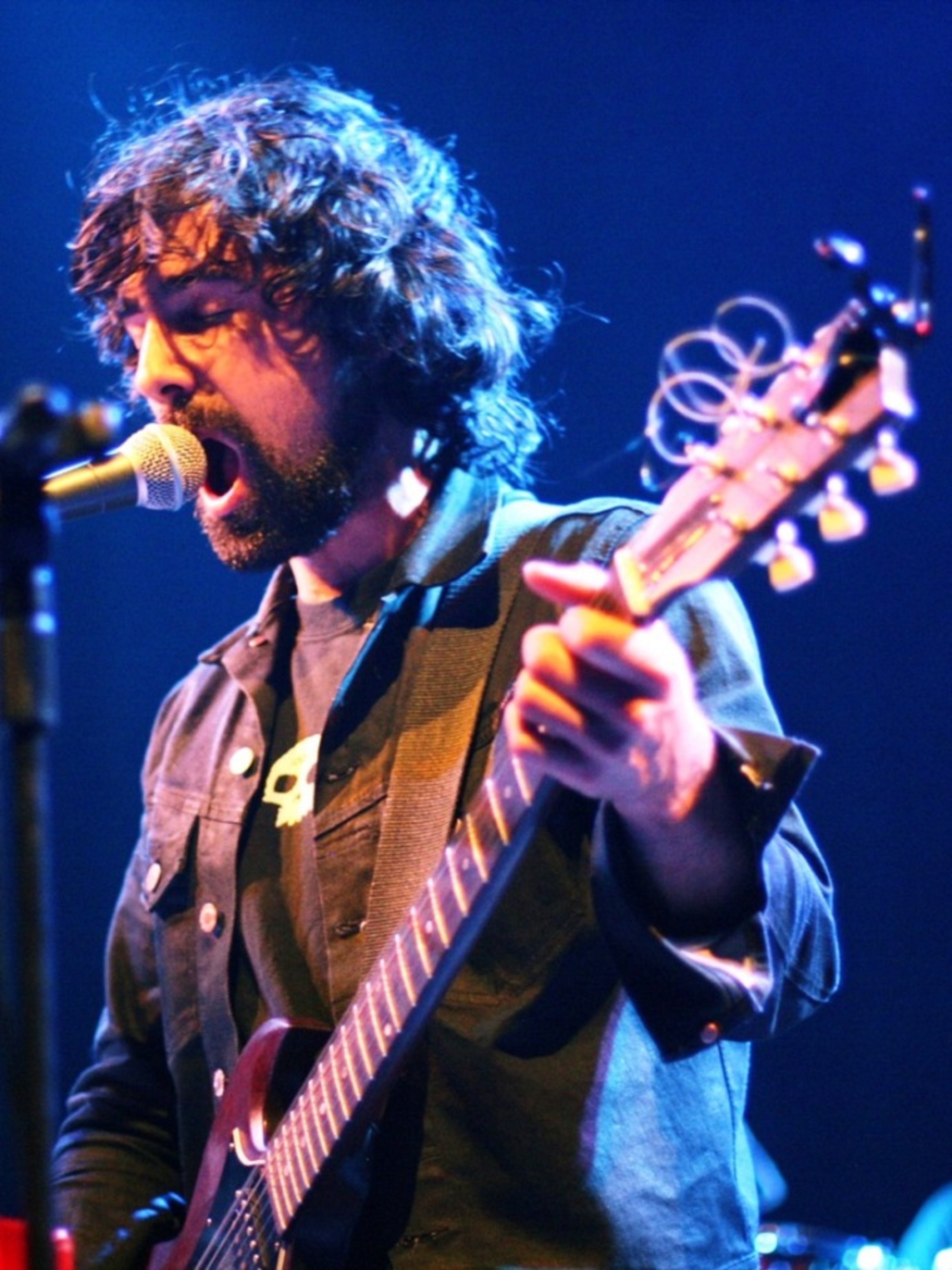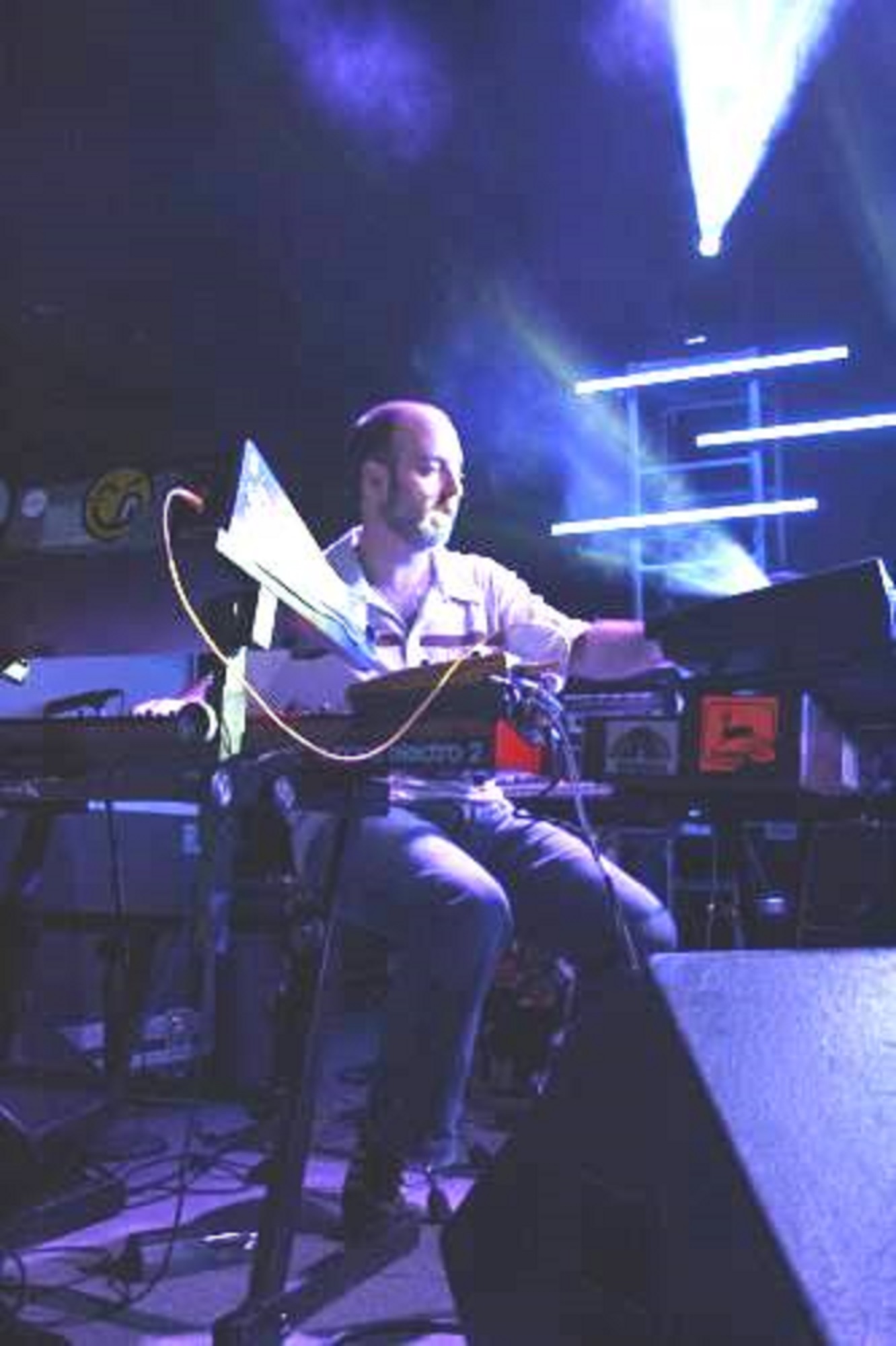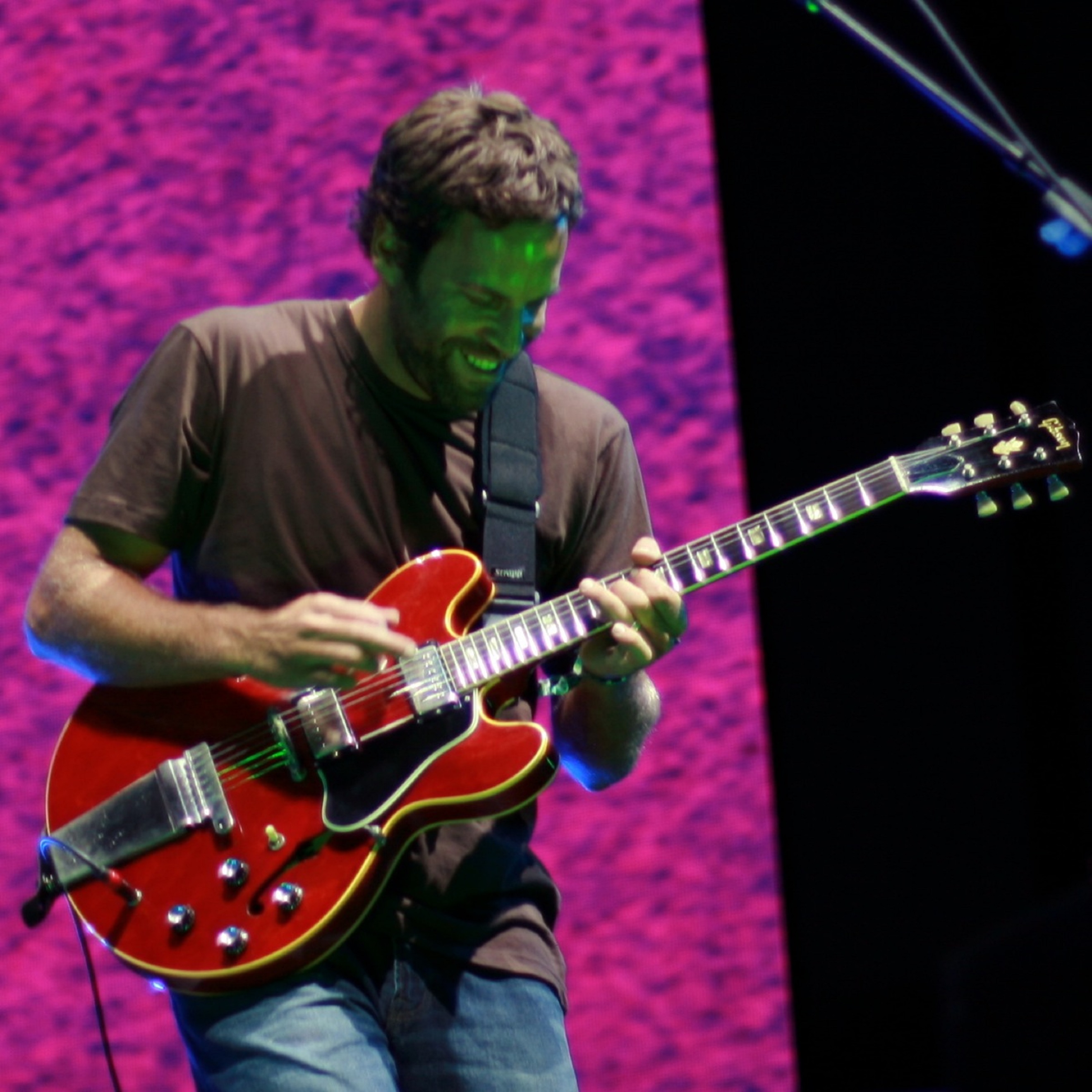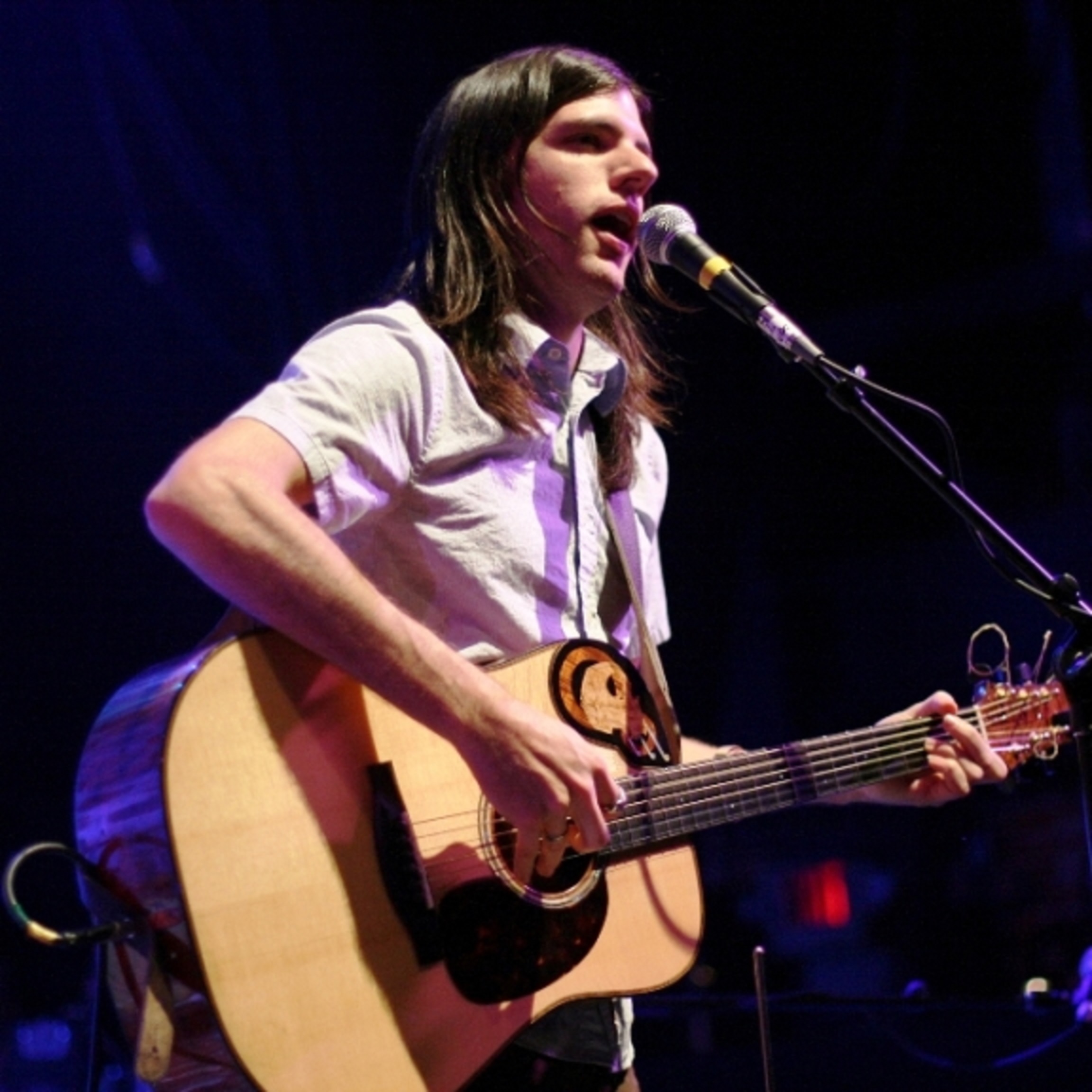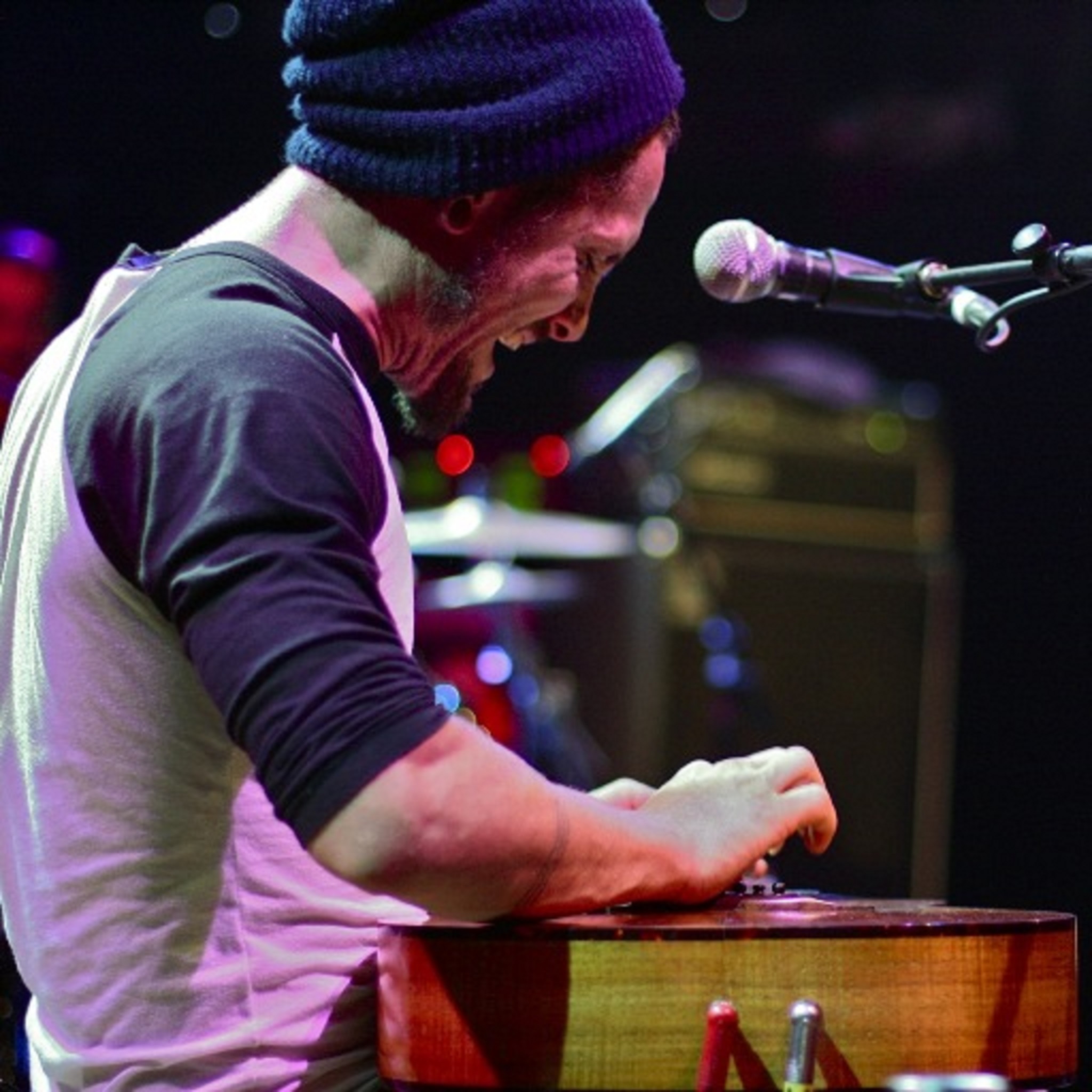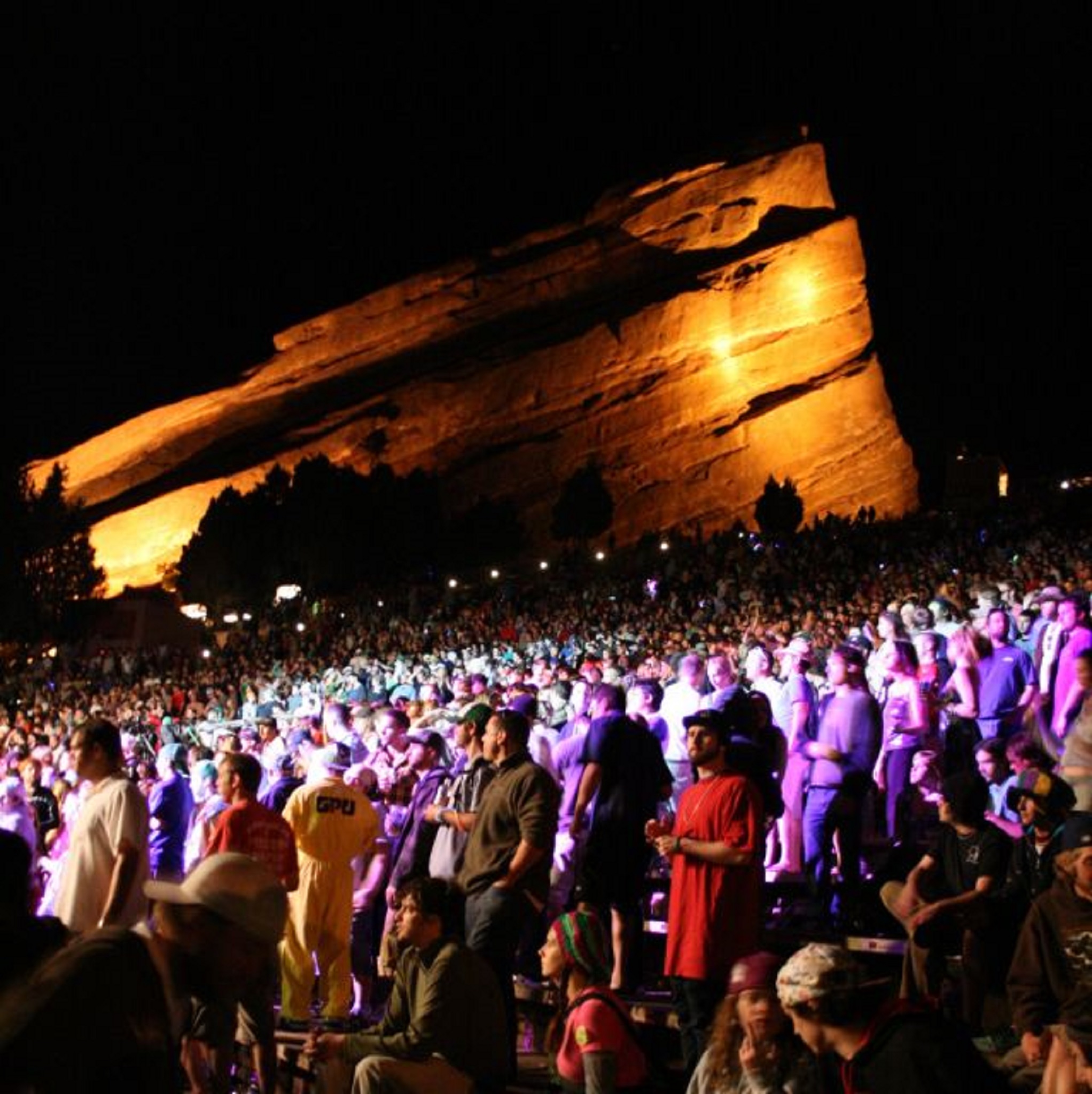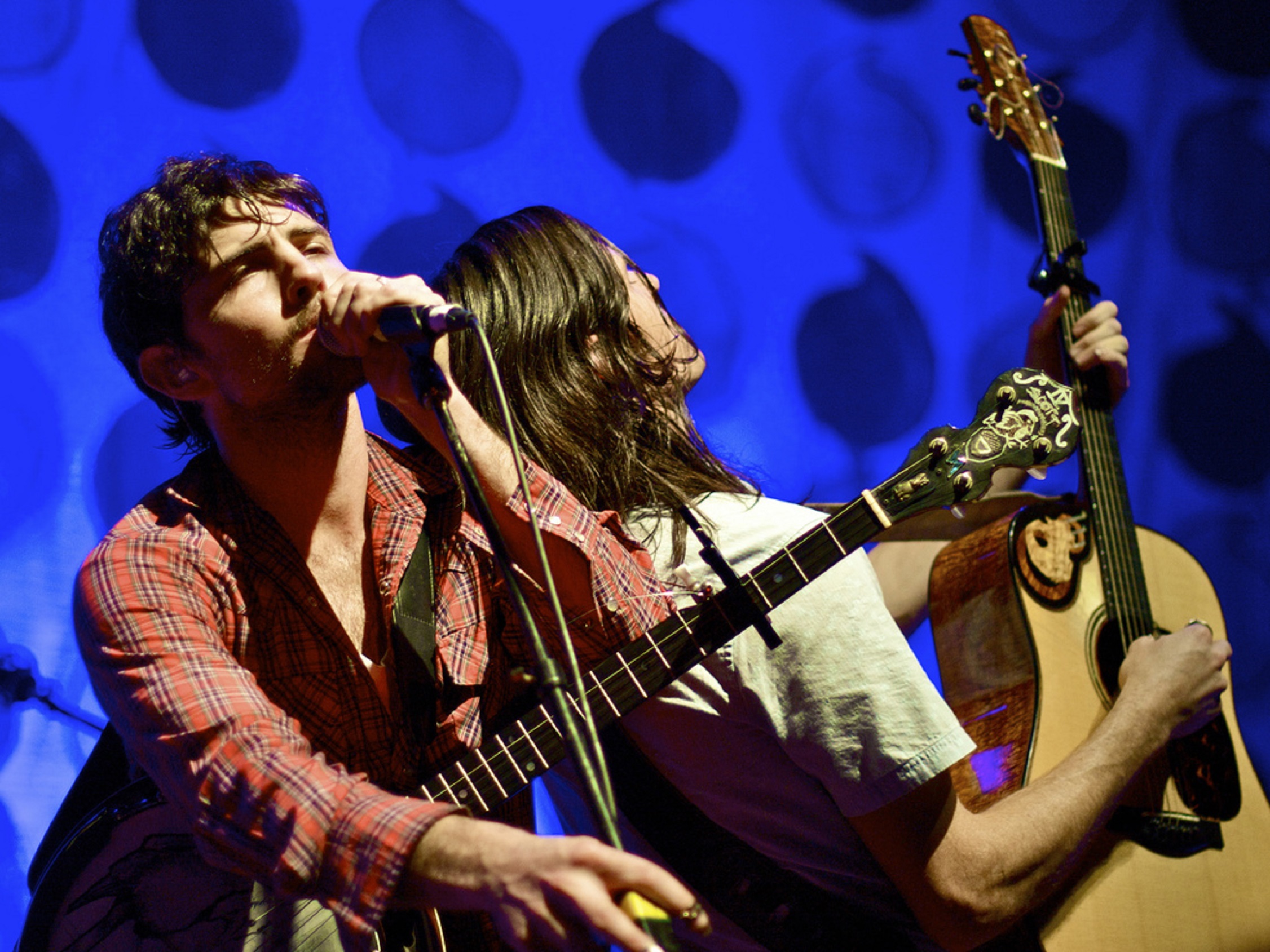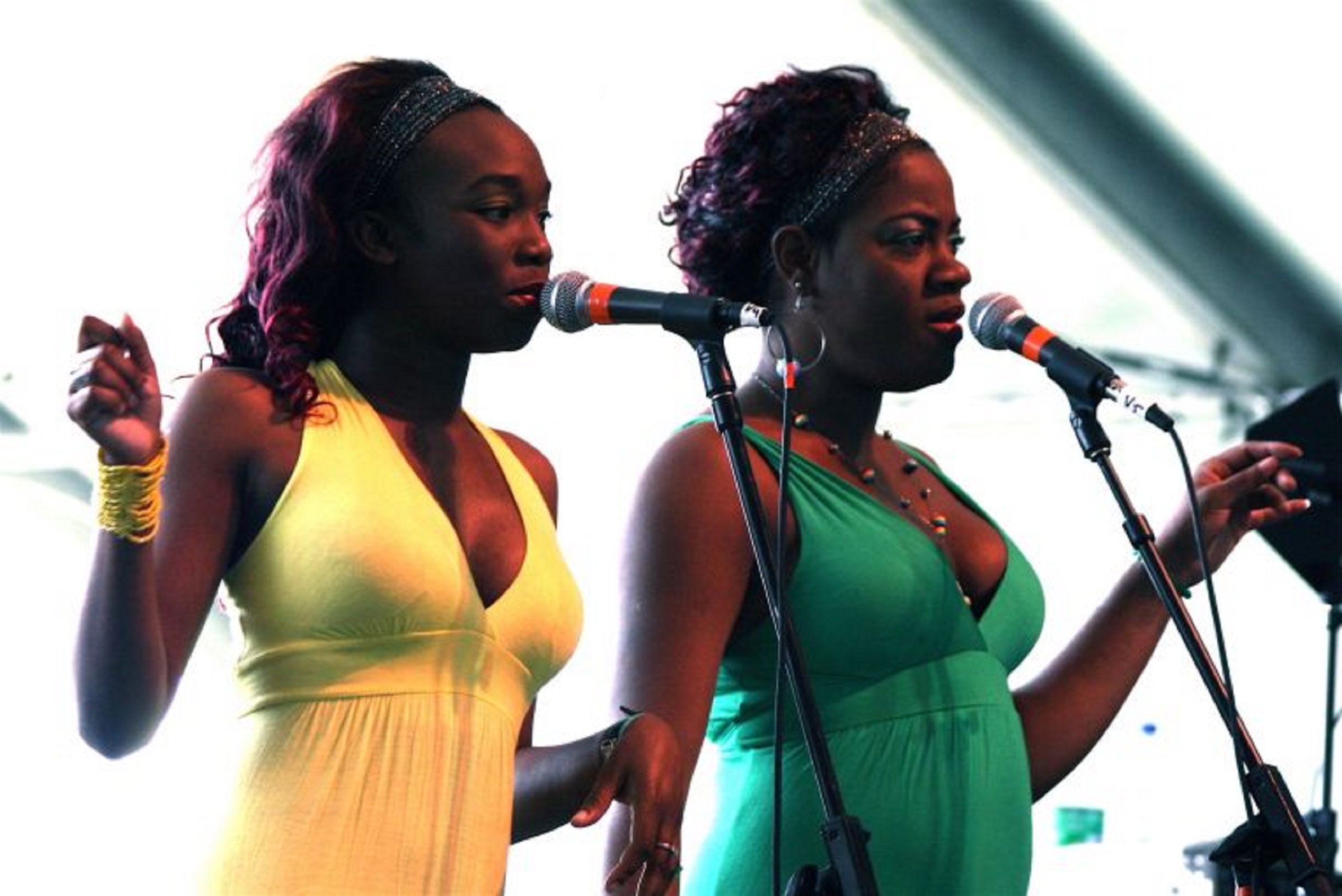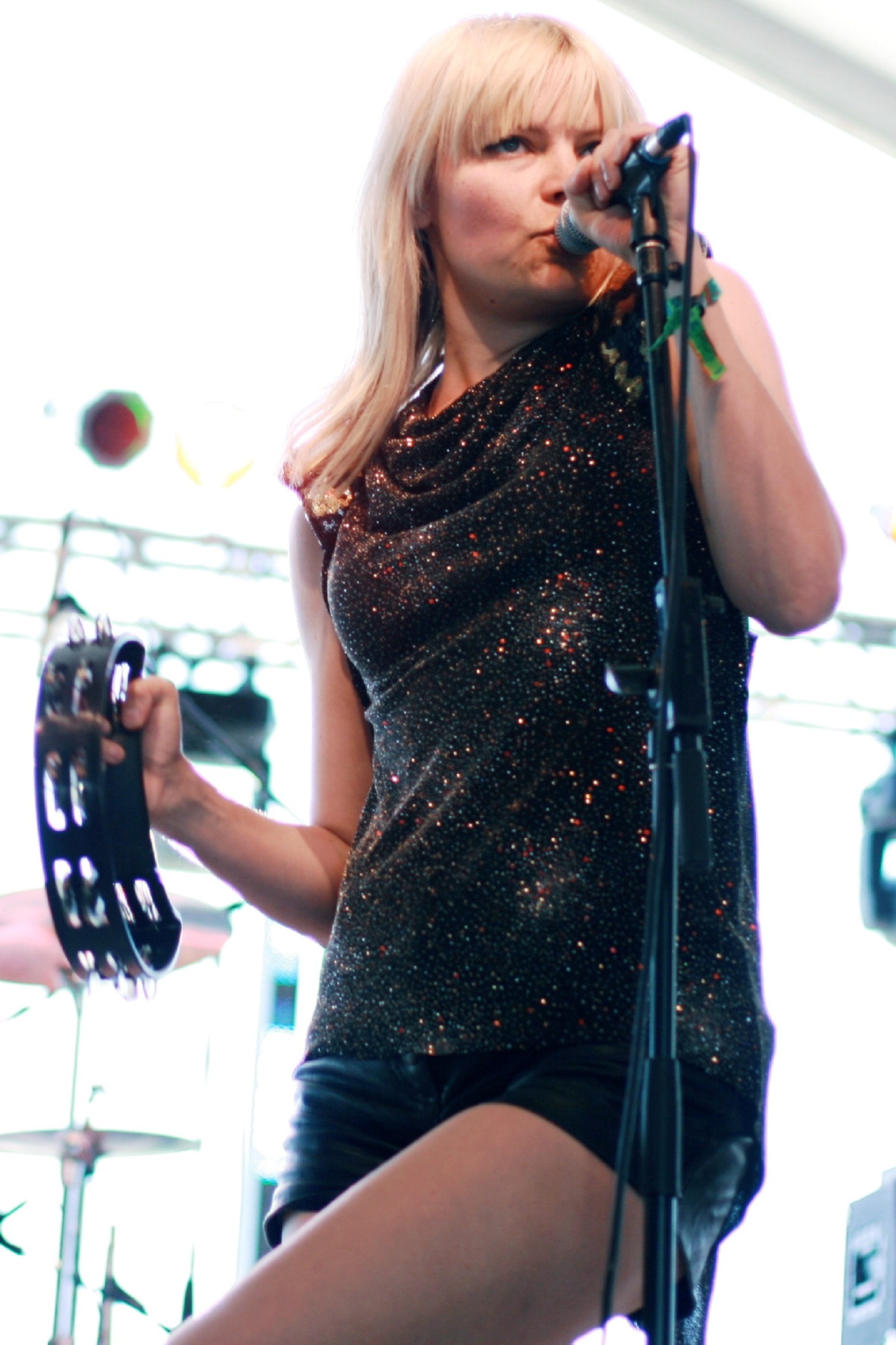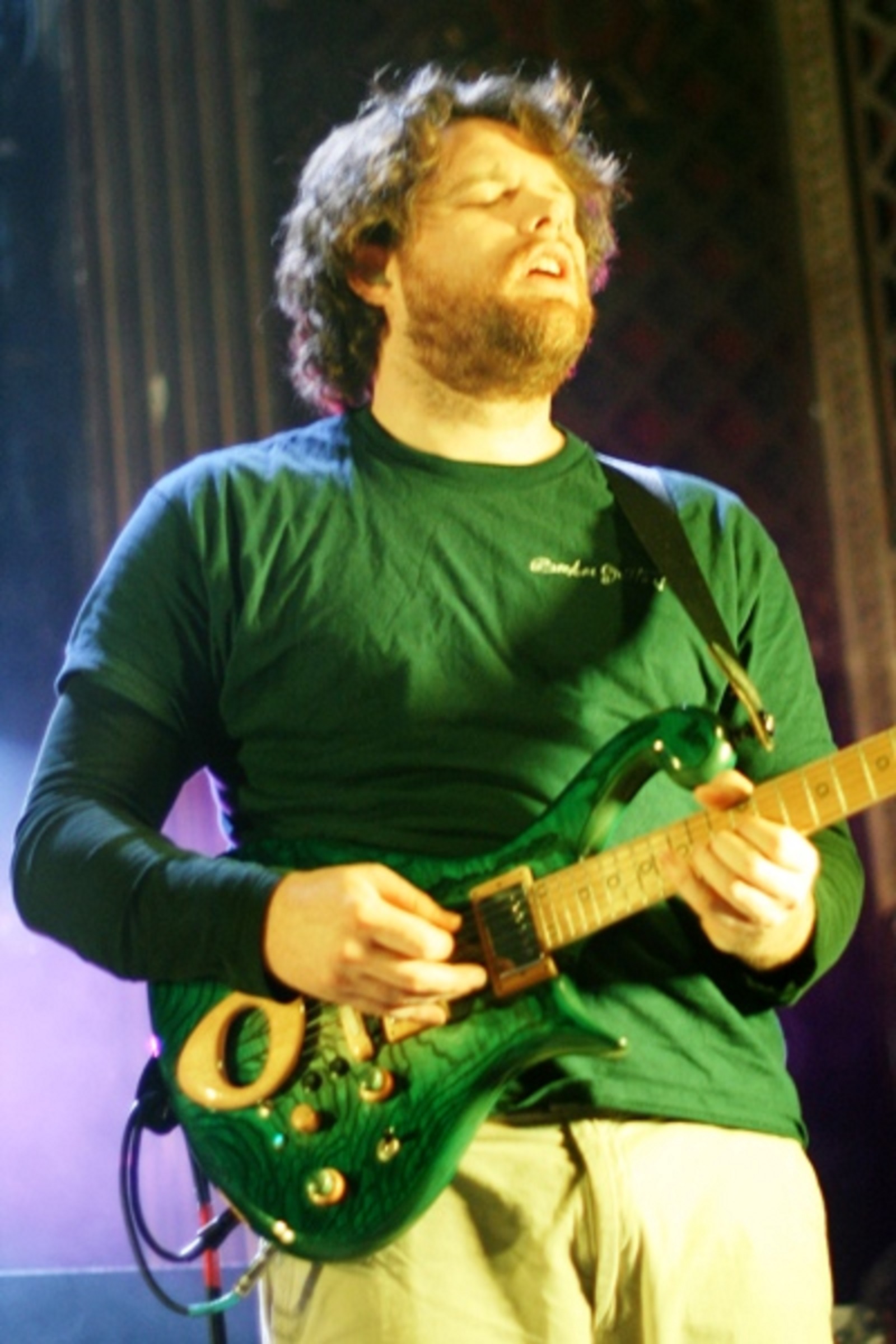Culture, like nature, evolves. Old ideas are made better, and become new ideas. Splits are made between schools of thought, and each side develops into something distinct from the other, even though both are the recognizable progeny of the previous generations. The growth of music over the last hundred years is perhaps one of the most notable examples of cultural evolution in action, and all the more remarkable since the existence of music is, arguably, unnecessary for the continuance of the human species.
Some people, including myself, might beg to differ. Where after all, would we be as a species without music? Its like asking where we might be without spoken language, or the capacity to see in color. No one knows, but it would be foolish to assume that life would be entirely the same. Existence, as we know it, could not endure without music because music is an integral part of that existence. Take for example the boys from Toronto's own The New Deal. Where would Jamie, Darren and Dan be if they weren't making kick ass house music? Dry cleaning, perhaps? Or *gasp* manning the drive through? Probably they'd have better jobs than that, but you just never know.
Pointless as this sort of speculation may be, we here in Boulder, CO were glad that music was alive and well last Friday night, when The New Deal brought their innovative brand of "live progressive breakbeat house" to the Fox Theatre. Supported by AnaSia, the Pnuma Trio, and more multicolored, flashing, rotating and pulsing lights than you could shake a glow stick at, The New Deal provided the perfect living example of one of music's latest evolutionary trajectories . Drawing on the influence of their ancestors, everything from freeform jazz to jamband to dance and 80's style synth music, and creating a sound that is unique not only to them but to this point in time, The New Deal showed us exactly why they are considered front-runners in the livetronica field.
I remember a time back in the relative infancy of electronica when I couldn't imagine how the stuff could possibly be performed live. Now, of course, I know better, but am still frequently amazed when I see real live humans perform in this particular genre. Maybe its because the music sounds so mechanical, so technologically dependent, that I am always all the more impressed when its made with more tangible instruments. Both AnaSia and Pnuma Trio had computers on stage that they relied on to varying degrees, and both performances were sensorially excellent, but The New Deal's show, with just drums, bass, and an assortment of keys (none of which spelled out QWERTY) was a step beyond if for no other reason than because Jamie Shields (keys), Darren Shearer (drums), and Dan Kurtz (bass) did it all themselves, right there on stage. Nothing was preprogrammed, and nothing was lacking.
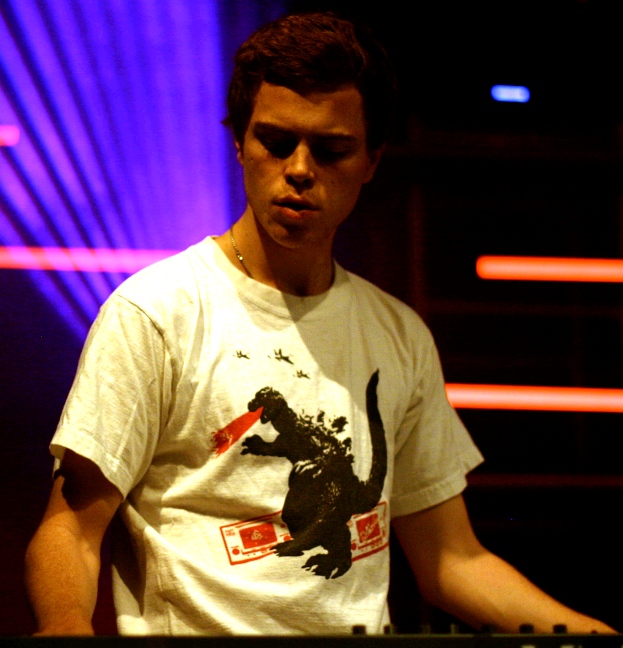 AnaSia's performance tool of choice, however, is exclusively her computer, a testament to just how far the evolution of music has come since the times of beating on rocks with other rocks. Her eclectic blend of dance, reggae, and hip-hop beats was more a treat for the ears than the eyes, although techno shows have a none-to-subtle way of making up for that with millions of pretty, shiny lights.
AnaSia's performance tool of choice, however, is exclusively her computer, a testament to just how far the evolution of music has come since the times of beating on rocks with other rocks. Her eclectic blend of dance, reggae, and hip-hop beats was more a treat for the ears than the eyes, although techno shows have a none-to-subtle way of making up for that with millions of pretty, shiny lights.
Pnuma Trio followed AnaSia's opening performance, mixing live instrumentation with clever computer trickery, and even more pretty, shiny lights. The sounds of the evening were filling out, getting into the people, who finally started to migrate stageward, and who began to notice in earnest the unexplainable urge to move and flail their limbs in (relative) synchrony with the pulsing low notes emanating from beneath the stage. Similar in their execution to The New Deal, the Pnuma Trio's music is more ethereal and less visceral than The New Deal's, and is felt more strongly in the head than in the gut. Those who came for The New Deal were only marginally less excited about Pnuma, whose popularity has been growing substantially in the past few years. In that time, Pnuma has grown up a little too, making their sound more distinct, and gelling more tightly as a band. Their lightning quick drum beats, space-age keyboard riffs, and smooth bass lines are getting better all the time.
But you know its the big time when the bras come off. The New Deal's thunderous set, nearly nonstop for two hours, elicited the tossing of not one, but two bras onto the stage. I attribute it largely the bone shaking bass guitar work of Dan Kurtz, which no doubt undid the hooks on the bras in question, causing them to fall, somehow magically upwards and forwards, onto the neck of the bass, and the cymbal stand of the drums. Either that or it was the lust inspired by the pure energy and pulsing rhythms (and did I mention the flashing lights?) of TND that caused the disrobing of certain members of the audience, I can't quite decide. In any case, Dan Kurtz's nudity-inspiring bass, Jamie Shields keyboard wizardry, Darren Shearer's superhuman drumming, and an explosion of lights, colors and smoke made the circus a wonder to behold, and impossible to resist. The whole show was dynamic. Peaks and troughs, beats and off-beats transitioned seemlessly to from one to the next in a constant tide of sound so thick it makes you feel the hairs on your arms vibrate with the rhythm. And the crowd danced themselves sweaty and sore. As for me, well I don't really dance, but I did smile, nod my head and say "hell yeah!" out loud to myself on more than a few occasions.
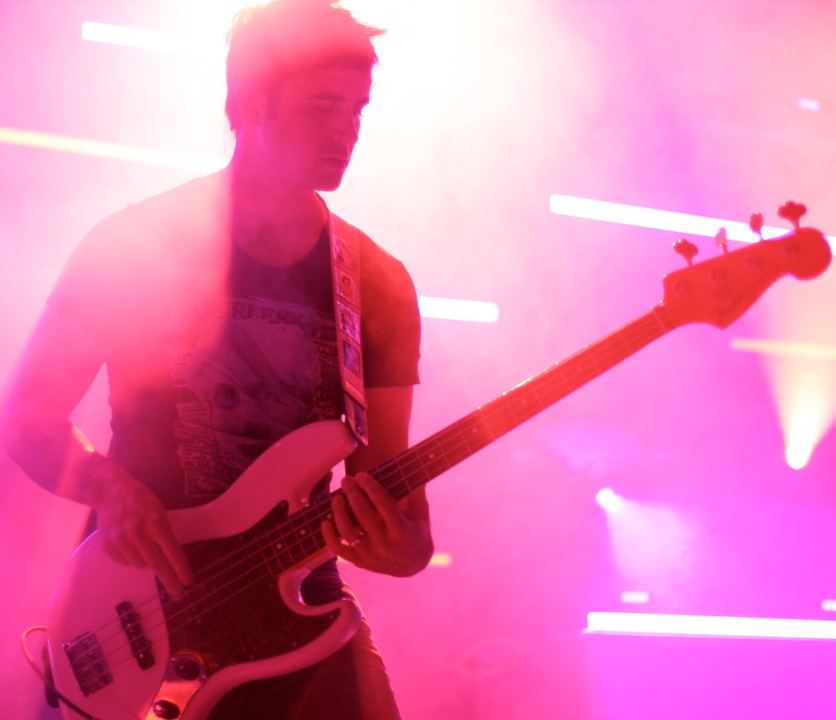 The New Deal would also like to remind everyone to register to vote, and then to actually get out and vote. And all I can say to that is: "What the hell, America?! You did so poorly in the last election that a bunch of Canadians have to remind you what's at stake this time? For shame..." If you don't vote for the sake of our country, then please, do it for The New Deal!
The New Deal would also like to remind everyone to register to vote, and then to actually get out and vote. And all I can say to that is: "What the hell, America?! You did so poorly in the last election that a bunch of Canadians have to remind you what's at stake this time? For shame..." If you don't vote for the sake of our country, then please, do it for The New Deal!






